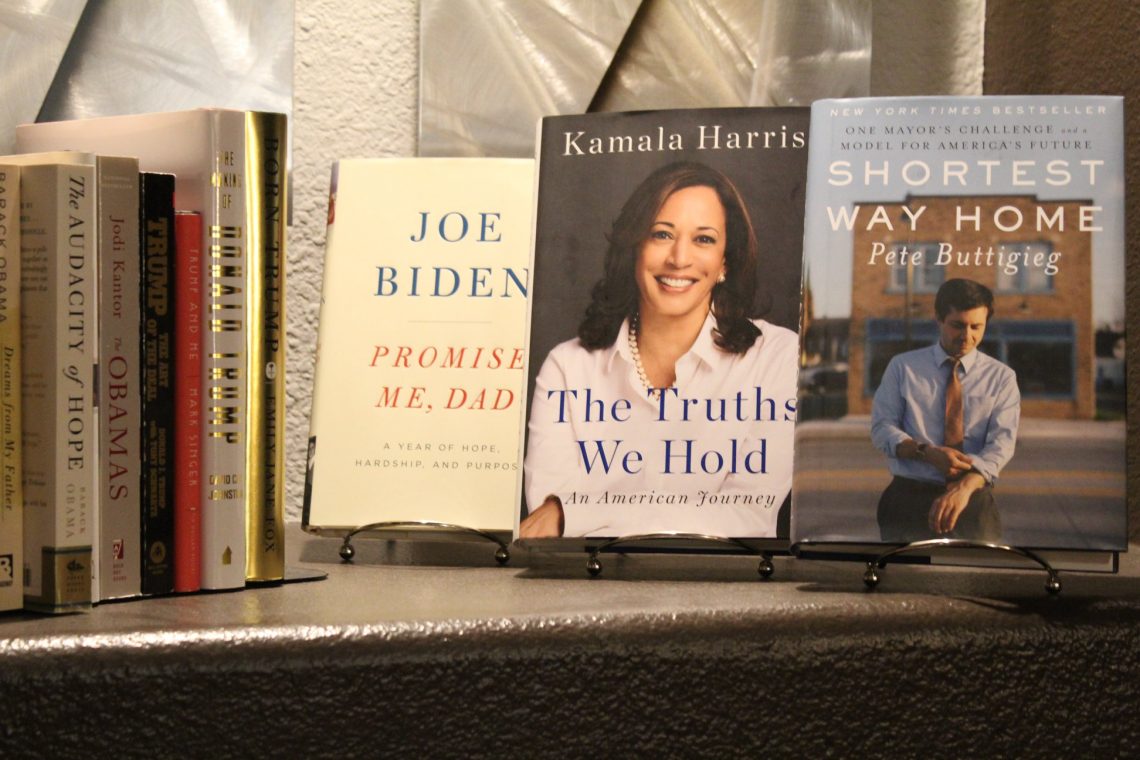
Biden, Harris, & Buttigieg
This past week, ahead of the Democratic debates, I decided to sit down and read through the most recent works of Joe Biden, Kamala Harris, and Pete Buttigieg, all of whom I respect as Americans, all of whom I consider to be level-headed, timely, and thoughtful presidential candidates. As a registered NPA (non-party affiliate), I have absolutely no stake in the primary elections, so what I write here, in offering an assessment of these candidates, both good and bad, only impacts those who do actually have a say in the coming months.
First, Mr. Biden. No one else in this race has endured the losses that he has. Namely, the loss of his wife and daughter in a car crash almost 40 years ago, followed in 2015 by the loss of his eldest son to brain cancer, the latter of which ultimately upended his will and his spirit to enter the 2016 Election. Of these three candidates, he is the most connected to and understanding of our American heartaches. But there is no denying that his affectionate, touchy nature can be seen, and may well have at certain times, crossed lines that would ultimately make him unfit for office. Moreover, there’s a real sting in recalling the way he belittled Anita Hill during the Clarence Thomas hearings so many years ago. Still, what I took away from his book was a reminder of how many positive relationships he has built over his career with leaders from within our nation and around the world, relationships that have been greatly strained over the past three years. That, at least, gave me a sense of comfort, should he be elected in 2020. If you want someone familiar, Democrats, then stay with Joe.
“I believe all politics is personal, because at bottom, politics depends on trust, and unless you can establish a personal relationship, it’s awfully hard to build trust.” (p.129)
Second, Mrs. Harris. As a former district attorney as well as an attorney general for the biggest state in the nation, Kamala has been on the front lines of almost every big issue our country has been up against over the last 15 years, from the housing and mortgage crisis and the opioid epidemic to the racial strains of mass incarceration and the radically aggressive and inhumane immigration policy from the current administration. While her personal story has been somewhat normalized and understated, the Oakland child of two immigrants who rose to the United States Senate, what troubles me is her tendency toward sensationalizing her own experiences, a habit of portraying herself as heroic. The reality is that anyone whose ongoing profession makes them an advocate for the least among us will either be ruthless or compassionate and Mrs. Harris may well be the latter. There’s no doubt in my mind that she has worked with people in their darkest hours, when they were losing their homes, when they had lost their children at the border, or when their addiction or incarceration made life seem hopeless. The question, now, is whether she can translate that level of advocacy into a broader love of the nation. She’s worth watching this week on the debate stage and in the coming months.
“A patriot is not someone who condones the conduct of our country, whatever it does; it is someone who fights every day for the ideals of the country, whatever it takes.” (p.280)
And lastly, Mr. Buttigieg. I was halfway through reading his book last weekend when news broke that he was taking understandable heat for the shooting of a black resident in South Bend. But let me step away from that for a moment and offer some levity. Mayor Pete is 37 years old and more accomplished in those years than most of us will ever be in our entire lives (navy lieutenant, Rhodes Scholar, speaks six languages, and twice elected mayor). He is insatiably warm, thoughtful, and tender-hearted, always willing to concede the areas where others have more knowledge and more insight. But what I admired about his book was how little it had to do with himself. He talks about small town America, even in the midst of dilapidation, job losses, and globalization, with such rich and vivid imagery that he restores a sense of admiration for what America has been at its core and what it still can be. His best chapter retraced a morning run through South Bend, a careful and thorough description of every nuance that he could recall from along the route, highlighting how much he pays attention to the details of his community. When it comes to racial disparity in South Bend, there’s no denying that the buck stops with the mayor and he simply has not done enough to bridge the divide. But no one can hear him, read him, or see him, honestly, and think he’s just a suit who doesn’t care. Of these three candidates, there’s no question that I support Mayor Pete.
“Over time I’ve observed that we are more generous, supportive, and pleasant toward people we actually know than toward those we understand only as categories or groups. Humans can of course be cruel in person, too, but as a general rule we seem less likely to hate from up close.” (p.228)
So there it is. My two cents for 2020 in the summer of 2019.

